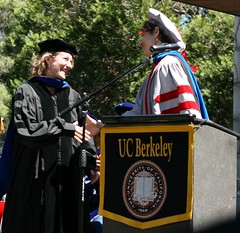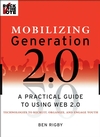Driving home yesterday, I listened to Pat Schroeder and NPR talk about how people are not voting for Hillary Clinton because of sexism. I swore at the radio and then apologized to my car.
As everyone who knows me knows, I’m SICK AND TIRED of this election. I’ve been disenchanted, frustrated, depressed, and irritated. Lately, I’ve just been downright angry. I am a third wave feminist and I’m proud of it. Gender issues have been central to my identity for as long as I can remember. I am ecstatic to think that a woman might be in the White House in my lifetime. But I refuse to vote for someone solely on the basis of their gender and I resent being told that this makes me sexist.
I have absolutely no doubt that sex, race, age, gender, religion, class, and other factors are at play in this election. Talking to teens, I was always fascinated by their discussion of “that black guy” and “that woman” running for president. At least those labels were relatively accurate. “That Muslim” (Obama) and “that polygamist” (Romney) were a bit harder to stomach. I am very frustrated by how intolerant much of this country is, but I don’t have a lot of patience for when people suggest that one intolerance is better or worse than the other. I’ve always appreciated the second wave feminists for what they did for women in the 1970s, but I identify as a third-waver because I think that it is irresponsible of feminists to seek power for rich, straight, white women at the expense of other women. So when Gloria Steinem wrote an op-ed in the NYTimes about how women are never front-runners, I shuddered. She argues that sexism is not taken as seriously as racism and that sexism is a bigger barrier. I’m not quite sure what world she’s living in.
My instinct was to list off all of the ways in which race is more of a barrier. Like the racial make-up of our jails. Or the racial make-up of the tech industry. Or the racial dynamics in LA. But this would be counter-productive because I don’t believe that comparing such intolerances is effective. And besides, they are tightly entwined and interwoven. So I mediated and just decided that Steinem doesn’t represent me or my generation of feminists.
And then there was Pennsylvania. Pennsylvania killed me. Going into PA, I believed that I could vote for either Democratic candidate in November. After PA, I decided that I’d rather vote for Mickey Mouse than Clinton. I have no tolerance for politics as usual and I’m pretty annoyed with all of the candidates at this point for falling into such disgusting crap. But how on earth did Clinton manage to convince the press that she’s “more working class” than Obama? After his (admittedly foolish) statements in Appalachia, she went on and on about how he was an elitist condescending fool while nothing that her husband was the first black president and aligning herself with the working class. How on earth is a millionaire with an amazing pedigree and unbelievable social connections able to convince working class America that she’s one of them? Grumble. I think we all need to do a bit of owning up to our privilege at this point. But, oh right, that won’t get us elected. Grumble 2.0. This was just one of the many charades that convinced me that Clinton is more determined to win by any means possible. And that worries me. I don’t trust that she’ll do what’s best, but what’ll make her look good. Gas tax holiday? Hello!
Lately, it’s been the whole sexism issue. I have no doubt that she’s been treated unkindly in the press. And sexism is part of that story. But how can she say that sexism is the reason that young, educated voters aren’t voting for her? She’s done extremely well with older women and white working class men and Hispanic/Latino groups. Sure, there’s still some sexism in here… I’ve heard plenty of older voters say that they’ll vote for her because her husband will help her out. But they still voted for her! She’s not done so well with young, educated groups or with black voters. How is this sexism? Frankly, if this election is about sexism, I wouldn’t have expected her to do so well with traditionally macho and misogynist populations. So is my refusal to vote for her a sign of my self-hatred?
I keep hearing that she’s not leaving the race because she doesn’t want to signal defeat, that she doesn’t want to let the sexists win, that she feels like she needs to stay in so that the next generation of women will feel as though they have the power to go for it. I am the next generation of women. I don’t feel disempowered by her not being the nominee but I do feel embarrassed by her refusal to step aside and her ongoing efforts to crack the party into half. I don’t like her speaking on behalf of my generation of women this way.
In her justifications and explanations, she refutes any critique that she’s not being a team player or that she’s doing damage to the party. In some ways, time will tell. But I hope to goddess that when she finally steps down, she works as a senior Democrat to help heal the party and bring people together. If she does this, I will give her a second chance. But right now, I’m absolutely positively disgusted. And please, can we get off this sexism story? It’s embarrassing.
Thanks for letting me blow off a little bit of steam.




